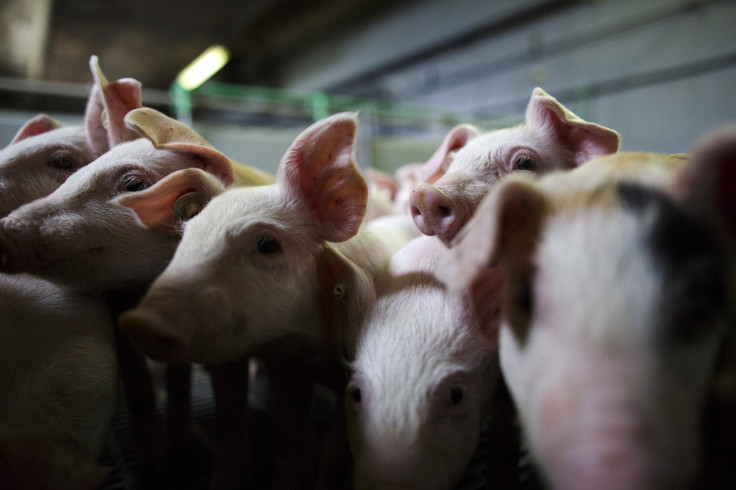US Researchers Create Part Human, Part Pig Embryos In Effort To Grow Human Organs For Transplant

Scientists in the United States have successfully created part human, part pig embryos, the BBC, which was given exclusive access to the University of California, Davis’ research, reported Monday. The experiment, which created “chimeras” — pig embryos embedded human stem cells — was part of the researchers’ efforts to grow human organs inside pigs.
The researchers allowed the chimeric embryos to mature inside pigs for 28 days, before terminating the pregnancies and analyzing the tissues. They concluded that if the embryos had grown further, the pigs born would look and behave like any other, but would have one organ that would be composed of human cells — in this particular case, the pancreas.
“Our hope is that this pig embryo will develop normally but the pancreas will be made almost exclusively out of human cells and could be compatible with a patient for transplantation,” reproductive biologist Pablo Ross, who is leading the research, told the BBC’s Panorama program.
The research aims to address the glaring shortage of donor organs across the world. In the U.S., for instance, where one name is added to the national transplant waiting list every ten minutes, 22 people die every day due to lack of available organs for transplant.
Such experiments, however, are still deeply controversial. Some have expressed fears that the presence of human stem cells may affect the pigs’ developing brains and somehow make them more human.
“We think there is very low potential for a human brain to grow, but this is something we will be investigating,” Ross told the BBC.
Others have voiced concerns over the risk of humans being infected with pig viruses, and of pigs being made to suffer in “organ farms.”
“Let's first get many more people to donate organs. If there is still a shortage after that, we can consider using pigs, but on the basis that we eat less meat so that there is no overall increase in the number of pigs being used for human purposes,” Peter Stevenson from the animal welfare group Compassion in World Farming, told the BBC.
Last year, the National Institutes of Health (NIH) imposed a moratorium on funding such experiments till such time it “considers a possible policy revision” in the area.
“NIH would like to undertake a deliberative process to evaluate the state of the science in this area, the ethical issues that should be considered, and the relevant animal welfare concerns associated with these types of studies,” the NIH said in a statement released in September.
© Copyright IBTimes 2024. All rights reserved.






















